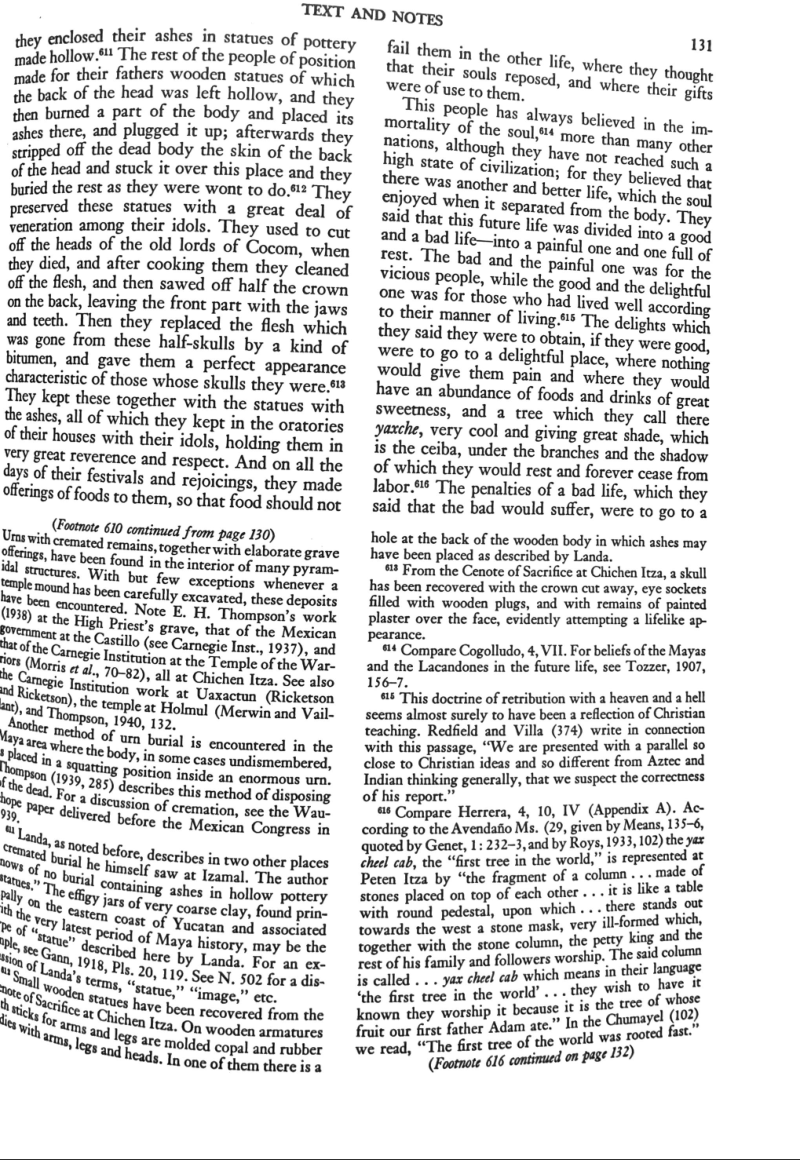Diego de Landa discusses the afterlife among the Maya; notes that they believed in an immortal soul and heaven and hell; no evidence they believed in the future resurrection of the body.
- Type
- Book
- Source
- Diego de Landa Non-LDS
- Hearsay
- DirectTranslation
- Reference
Diego de Landa, Landa’s Relación De Las Cosas De Yucatan: A Translation, ed. Alfred M. Tozzer (New York: Kraus Reprint Corporation, 1966), 131-32
- Scribe/Publisher
- Kraus Reprint Corporation
- People
- Diego de Landa
- Audience
- Reading Public
- Transcription
This people has always believed in the immortality of the soul, more than many other nations, although they have not reached such a high state of civilization; for they believed that there was another and better life, which the soul enjoyed when it separated from the body. They said that this future life was divided into a good and a bad life—into a painful one and one full of rest. The bad and the painful one was for the vicious people, while the good and the delightful one was for those who had lived well according to their manner of living. They delights which they said they were to obtain, if they were good, were to go to a delightful place, where nothing would give them pain and where they would have an abundance of foods and drinks of great sweetness, and a tree which they call there yaxche, very cool and giving great shade, which is the ceiba, under the branches and the shadow of which they would rest and forever cease from their labor. The penalties of a bad life, which they said that the bad would duffer, were to go to a place lower than the other, which they called Metnal, which means “hell,” and be tormented in it by the devils and by great extremities of hunger, cold, fatigue and brief. They maintained that there was in this place a devil, the prince of all the devils, whom all obeyed, and they call him in their language Hunhau. And they said that these lives, bad and good, had no end for the soul has none. They said also and held it as absolutely certain that those who hanged themselves went to this heaven of theirs; and on this account, there were many persons who on slight occasions of sorrows, troubles or sicknesses, hanged themselves in order to escape these things and to go and rest in their heaven, they said that the goddess of the gallows, whom they called Ix Tab, came to fetch them. They had no memory of the resurrection of the body and give no account from whom they learned of this heaven and hell of theirs.
- Citations in Mormonr Qnas
The B. H. Roberts Foundation is not owned by, operated by, or affiliated with the Church of Jesus Christ of Latter-day Saints.

